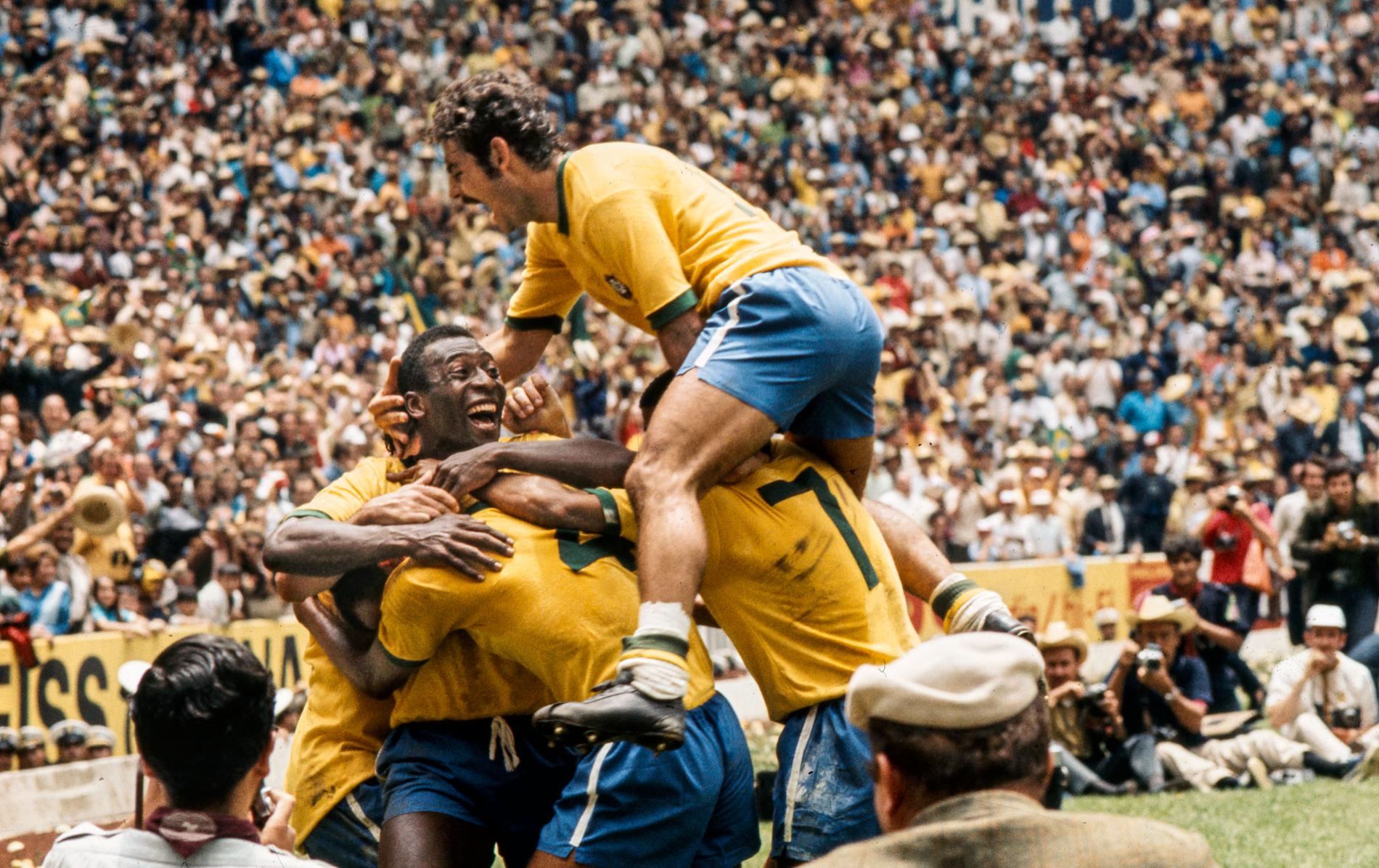Larger? We can discuss that. The best? This also.
But first? There is only one.
Pele is no longer alive. He will never die.
It can’t be true, to that extent I understand. Was the best soccer player in the world cruising the streets half an hour from my parents’ house, in the days before he won his first world championship? Did Pele go to the Hindus?
Apparently he had. I read about him in books, and tried to imagine what it was like when he eased the ball over Jules Gustafsson in the final – it was like reading how Gordon Banks “turned in the air”, better in imagination than when I watched it later on TV pictures. I didn’t see pictures of how a gorgeous seventeen-year-old Brazilian loitered around Sweden until later, and the ones that played were on three or four levels at the same time.
Sweden was at the beginning of building the people’s house.
Brazil was at the beginning of the birth of a nation.
Football was at the beginning of the television era.
It was Edson Arantes do Nascimento, at the beginning of it all.
No one, no one, can take away from him what he gave to football or to Brazil.
This nascimento means “birth” as it must, because it all began with him. He was 17 when he, Didi, Fava, Garrincha and the others won his first televised World Cup, and he cried like the baby he was. The World Cup played a great part in the story of Sweden’s success story that emerged after the war, but it was a perfect fit for Brazil’s. Former dictator Getúlio Vargas shot himself in the presidential palace, and in the gap that existed before the military dictatorship there was room for the emergence of a new state.
They were ready to be all they could, and Juscelino Kubitschek took over as president promising tremendous progress, “fifty years of development in five years.” Oscar Niemeyer began painting the new capital, Brasilia. Bossa Nova was the soundtrack for a new era, New cinema New country pictures. Young multi-ethnic Brazil needed something that could believe in this development, an image of national identity with color, speed, intelligence and creativity.
Eight years since the national shock Maracanazo (The gold that disappeared against Uruguay) At the World Cup on their soil they got everything they dreamed of.
They’ve got a football. They’ve got loo gold.
Written by Vic Pele.
What he gave Brazil at that time and there was a new face, beyond poverty and backwardness, immediately flew around the world. President Kubitschek saw it, so he sent a telegram to the team in Stockholm thanking them for “showing a new Brazil, which is beginning to reap its victories”.
Everyone has their heroes and their choices, I can consider Maradona the greatest, Messi the best, Cruyff the most important, but Pele was the first – and he helped build the country that will become the best football country in the whole world. He won two more World Cup gold medals, scored more than a thousand goals, before Pele came in my time with his business deals, his antics and his boasting in all kinds of positions of power (it is said that he met Bapotin and more than a hundred heads of state). He shook hands, flashed his inviting smile, and said “Make love, not war” and there was no more to it.
He was not as controversial and interesting as Maradona or Muhammad Ali, not as a great thinker as Cruyff, not as a tragic artist as Garrincha.
But no one, no one, can take away from him what he gave to football or to Brazil.
In the name of football: Thank you
I belong to a generation left out by the videos of tricks and tricks he invented, his perfect football (it is said that he can be the best in any position, as was said of Nils Liedholm in Sweden), or that computer animation made this year of his most amazing goals. , when he scored two goals when he was eighteen years old hatHold your ground before putting the ball into an open goal against Santos. I’ve been reading about the World Cup gold medal and delving into the stats, listening to old people who consider it the absolute best to play this stupid old sport.
That may be.
What I do know is that he was in the Hindus, that he is in heaven, that he won three World Cups and shaped the greatest football nation in the world on his journey in between.
There was football before him, and there was football after him.
What can you say then? None more than Jorge Valdano, world champion with Argentina in 1986 and the greatest soccer poet of our time, wrote when news of Pele’s illness came last year:
On behalf of football: Thank you very much.

